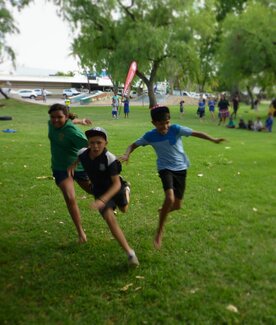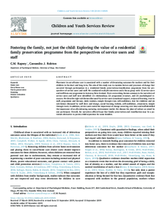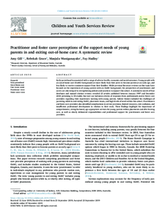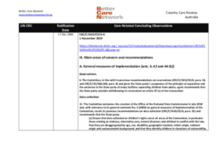

Displaying 251 - 260 of 677
This Chapter from Education in Out-of-Home Care illustrates that increased resourcing is needed to facilitate the achievement of improved education outcomes for Australian primary school children in out-of-home care (OHC).
Drawing on interviews and focus groups with child protection social workers from three site offices in Aotearoa New Zealand (interviews, n = 26; focus groups, n = 25) and using thematic analysis, this study identified the case, internal organisational, inter-site organisational and external elements that contributed to threshold decisions.
The aim of this study was to examine factors and processes of change that occurred through participation in a residential family preservation/reunification programme from the perspectives of service users and staff.
This literature review sought to explore the perspectives of practitioners and foster care providers on the topic of young people in and exiting out-of-home care (OoHC) who become parents at an early age.
The objective of this study was to examine associations between being the subject of child protection reports in early childhood and diagnoses of mental disorders during middle childhood, by level of service response.
This country care review includes the care related Concluding Observations adopted by the Committee on the Rights of Persons with Disabilities and the Committee on the Rights of the Child.
This article provides an overview of literature investigating the needs of Indigenous children in residential care facilities in Australia.
In this study, the authors analyse a child protection services dataset that includes a network of approximately 5 million social relationships collected by social workers between 1996 and 2016 in New Zealand to test the potential of information about family networks to improve accuracy of models used to predict the risk of child maltreatment.
This article from SBS News highlights some key findings from the recently published Family Matters Report 2019 on Aboriginal and Torres Strait Islander children in out of home care in Australia.
Child protection-involved children experience disproportionately high criminal justice system contact, yet little is known about the circumstances in which such children offend. This study sought to identify the contexts in which this group of children offend and factors associated with children being charged in each context.



